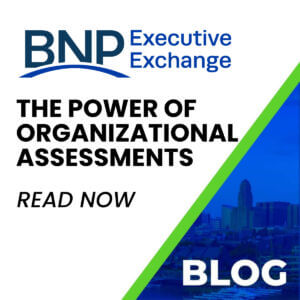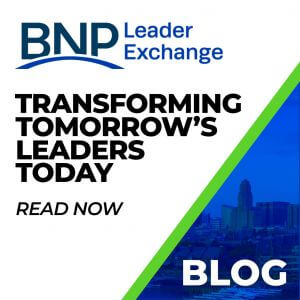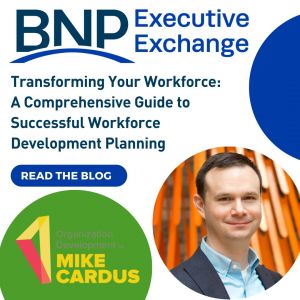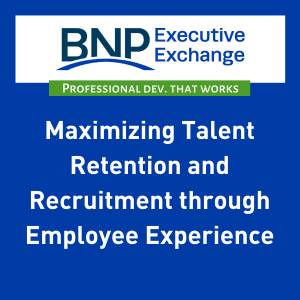Strengthening Board Culture and Performance
The Partnership
July 16, 2024
Blog Categories
Nurturing a healthy board culture is paramount for achieving effective governance and high performance. In a general sense, culture refers to one’s attitudes, beliefs, norms, values, and ways of behaving. Stating values and beliefs is one thing. Living them every day, beyond policies, procedures and controls is another.

How does the idea of culture relate to the context of the culture of a board of directors?
Board culture refers to the set of written or unwritten rules that guide and influence the board’s decisions, functions and relationships. While a healthy board culture fosters collegiality, mutual respect, and ingenuity in problem solving, culture can evolve independently over time and potentially undermine the board's effectiveness.
Getting governance right calls for boards to hit their own “refresh” button as they adapt to changing expectations and circumstances. In recent studies (adapted from Harvard Business Review), five elements — “disrupters” — tend to hinder the progression of boards toward their overall effectiveness and high performance:
- Lack of clarity on the roles of individual directors and the board as a whole. Role ambiguity slows decision-making and causes unnecessary director conflicts.
- Poor process management hinders effective board preparation, meeting management, and communications. This often results in indecisiveness and a lack of urgency regarding critical challenges facing the organization.
- Lack of alignment and agreement on strategy may cause disinterest among board members, who then simply default to tackling regulatory and compliance issues. Poor strategic alignment also hampers a board’s ability to prioritize issues and set their agendas.
- Poor team dynamics fracture boards and lead to power struggles. Like any effective working group, a board should be comprised of professional peers who respect and collaborate well with each other.
- Ineffective board composition and structure can significantly hinder an organization’s success. It’s important to consider diversity in experience, skills, and backgrounds in order to keep boards well-rounded. Balanced boards with diversity of thought tend to have better conversations, make smarter decisions, and employ a more holistic approach when handling issues.
These five elements significantly influence the board's effectiveness and its ability to foster a positive board experience.
Boards however can enhance overall performance by implementing several strategies to address “disrupters” such as:
- clarifying board goals, expectations, committee structure, and performance criteria for directors and management
- providing a thorough board orientation for new members to ensure smooth transitions
- conducting a comprehensive board self-assessment focused on the “work of the board”
- facilitating interactive board retreats or working sessions to revisit the organization's mission, strategy, priorities, outcome measures, and change initiatives
By recognizing and addressing the common disruptors that impede effectiveness, boards can pave the way for positive change.
Ultimately, boards set the tone at the top regarding culture—not just in the way the board prioritizes and oversees the organization’s culture but also in the dynamics, functionality, and culture of the board itself.
About the Author

Anne M. Moretti, President of Moretti Consulting, LLC, BNP Executive Exchange Facilitator, brings 25+ years of executive level management and organizational development consulting experience. Her consulting expertise focuses on Executive & Leadership Development, Assessments, Board Development, Change Management, Team & Organizational Effectiveness, Talent Management & Succession, and Strategic Planning in a wide range of industries and non-profit organizations. A recipient of Business First’s Pathfinders Award and former Board President & Chair for the Niagara Frontier Industry and Education Council, Anne served on boards in the community such as the American Cancer Society and the United Way. She also designed/taught the 2-day, Board Effectiveness Certificate Program at UB’s Institute for Nonprofits with Linda Nenni, Esq. Anne is a member of numerous professional organizations and serves as visiting faculty at regional universities, including the University at Buffalo’s Centers for Leadership & Organizational Development and Entrepreneurial Leadership.
 Kristin Campbell, PhD, Assessment Consultant at Moretti Consulting, LLC, has spent 20+ years developing surveys, conducting assessments, and analyzing data in the field of education, healthcare, politics and community sentiment. She earned a B.A. in Political Science from Union College and her PhD from Texas A&M University. While completing her doctorate, she also received specialized training in survey research from the University of Michigan. Dr. Campbell has taught at Hamilton College, SUNY Binghamton and SUNY Buffalo. She also worked at Cornell University as a survey researcher and data analyst. Over the last 10 years, Kristin and Anne have worked closely together administering and customizing assessments regionally and nationally.
Kristin Campbell, PhD, Assessment Consultant at Moretti Consulting, LLC, has spent 20+ years developing surveys, conducting assessments, and analyzing data in the field of education, healthcare, politics and community sentiment. She earned a B.A. in Political Science from Union College and her PhD from Texas A&M University. While completing her doctorate, she also received specialized training in survey research from the University of Michigan. Dr. Campbell has taught at Hamilton College, SUNY Binghamton and SUNY Buffalo. She also worked at Cornell University as a survey researcher and data analyst. Over the last 10 years, Kristin and Anne have worked closely together administering and customizing assessments regionally and nationally.
Join the Exchange
The Executive Exchange Program is a mastermind group tailored exclusively for C-Suite and senior executives. Here, you can explore strategies, solve problems, and grow both personally and professionally.
Don't miss this opportunity to elevate your team's executive leadership. Apply today and join a network of forward-thinking businesses.
Related Posts
Using the power of assessments to guide organizational transformation
In today’s dynamic business environment, focusing on new ways of working, new capabilities and new technologies shape the way forward. Here’s how assessments can help organizational leaders start asking the right questions, uncover uncommon knowledge and stay ahead of workplace trends.
Transforming Tomorrow’s Leaders Today: Inside WNY’s Leader Exchange Program
With its practical curriculum, experienced facilitator, and focus on real-world application, the Leader Exchange Program sets a new standard in professional development. Find out what makes Leader Exchange different than any other leadership program in Western New York.
Transforming Your Workforce: A Comprehensive Guide to Successful Workforce Development Planning
In today’s rapidly changing business landscape, companies need to be able to adapt and evolve to stay competitive. One of the most critical elements of this is developing a workforce that is agile, skilled, and able to drive innovation.
Maximizing Talent Retention and Recruitment through Employee Experience
As a corporate business owner, you understand the importance of attracting and retaining top talent to succeed. However, with so many companies vying for the same pool of talented employees, it can be a challenge to stand out. One solution gaining popularity is Employee Experience (EX), which focuses on creating a positive and engaging workplace environment.




